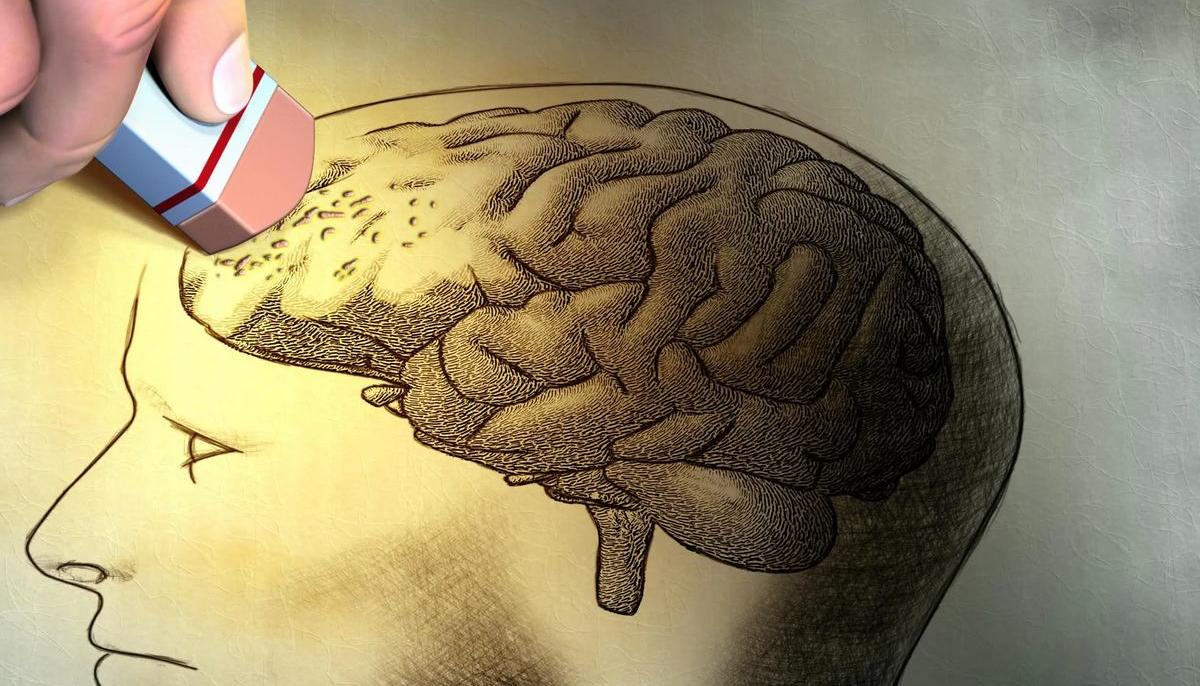Memory - how does it work?
Encoding, storage and retrieval represent the three major processes involved in the functioning of memory.
In the encoding stage, the information is converted into a form that the brain can understand , respectively:
- Visual (images)
- Acoustics (sounds)
- motor (movements)
- Semantics (meaning).
Coding can also be:
- Active , when we consciously set out to understand the information, e.g. we learn a foreign language and make intentional associations between the word and its meaning.
- Passive , when we perceive information without making a conscious effort in this regard, e.g. we hear the sound of a phone in the subway.
In the storage stage, the information is kept in the brain:
- In the short term (short-term memory) - for example, we remember what we wrote down on the shopping list in the morning and by the evening we forget what we wrote down, or we momentarily remember a phone number that we need, after which we are unable to remember it we reproduce from memory.
- In the long term (long-term memory) - for example, we remember a celebration in kindergarten many years ago, an incident during geography class at school.
In the recovery stage, we access the information stored in the brain and use it. Recovery can be:
- Induced - we try to remember what was discussed at a meeting.
- Spontaneous - we remember the name of a former colleague effortlessly.
For a long time, researchers believed that memories are formed due to changes that occur at the level of nerve cells (neurons). The latest studies and research in the field of neuroscience suggest that memories are created through the connections that exist between these neurons, either by strengthening connections or by developing new connections.
In other words, when we learn something new, the nerve cells involved in the process are activated. Repeating these activations helps strengthen the connections between neurons. The stronger the connection, the more likely it is that the retained information will be remembered. For this reason, the more we practice/repeat some information, the more likely we are to remember it for long periods of time.
Why were we forgetting?
Forgetting is an extremely common phenomenon, we forget an appointment, we forget the name of a colleague from another department. Why do we forget these things that we once knew? There are several explanations:
- The failure occurred in the second stage, that of storing the information. In practice, we fail to correctly store information in our memory.
- The existence of some interferences, for example new information overlaps with the old, we confuse the face of a known person with someone else who has similar features.
- Motivated forgetting – a defense mechanism that occurs with the aim of avoiding some painful or unpleasant memories.
- Retrieval failure - the inability to access information, for example, in some situations, a clue can help us remember the information. In the absence of such a tip, information recovery is not possible.
- Lack of attention - some information is lost from the beginning if we do not pay attention to it or do not concentrate enough. A suggestive example in this sense is multitasking, which can lead to the loss of some information because the cognitive processing capacity is not infinite, and the brain faces difficulties in processing everything simultaneously.
- Lack of use of information - when not accessed for long periods of time, information is lost to make way for new ones.
- Aging and some health problems - conditions such as Alzheimer's disease . Aging is a physiological process that causes some changes in the level of cognitive functions, including memory, therefore the speed of information processing is slower, and easy - temporary forgetting is natural at advanced ages.
Improving memory and brain health
Memory can be trained through learning and repetition , but it also needs rest and physical exercise. On the other hand, memory is a complex process that involves several structures and functions of the brain , so to have a good memory it is necessary to think first of all about the health of the brain.
How do we keep our brains healthy?
- A balanced diet, rich in nutrients, is beneficial for brain health.
- Regular physical exercises contribute to blood circulation and brain oxygenation. Learn more about the benefits of sports on the brain.
- Sufficient rest is essential for the functioning of the body, learn more about the risks we expose ourselves to when we don't get enough sleep
- Reducing stress favors the ability to concentrate and memorize.
Stimulating creativity, socializing by participating in discussions and debates and engaging in cognitive activities and different games, such as the puzzle, are favorable to the development and improvement of memory , along with attention.
Attention is a major component of memory. In order to "move" the information from the short-term memory to the long-term memory, it is absolutely necessary to pay attention to that information. As a result, it is recommended to turn off, for example, the various notifications on the phone/laptop when working on a task or when studying. Getting rid of things that could distract us, such as noisy colleagues or working remotely with children, is a challenge, but the exercise is worth trying.
How do we manage mild memory loss?
Some useful strategies to manage mild memory loss.
- Write - note down on a sheet of paper, this simple action helps to consolidate the information in the memory and implicitly, to a better memorization.
- Make sense of the information - the chances of retaining meaningful information are higher because we associate the new information with the ones we already have.
- Repeat - repetition is truly the "mother of learning" because it strengthens neural connections and promotes long-term retention of information.
- Group information - the brain likes selection and prioritization of information.
- It uses memorization techniques to train the brain - through repetition, association (linking new information with old), teaching (explaining some information to a real or imaginary interlocutor strengthens understanding and memorization).
In a society marked by the fast pace of life, new technologies, the abundance of information and stimuli to which we are exposed, the maintenance of attention and the factors that help to consolidate memory are significantly affected. Moments of rest, breaks from social networks, embracing a balanced lifestyle and reconnecting with nature reduce the risk of mental fatigue, supporting the ability to concentrate and good memory functioning.







